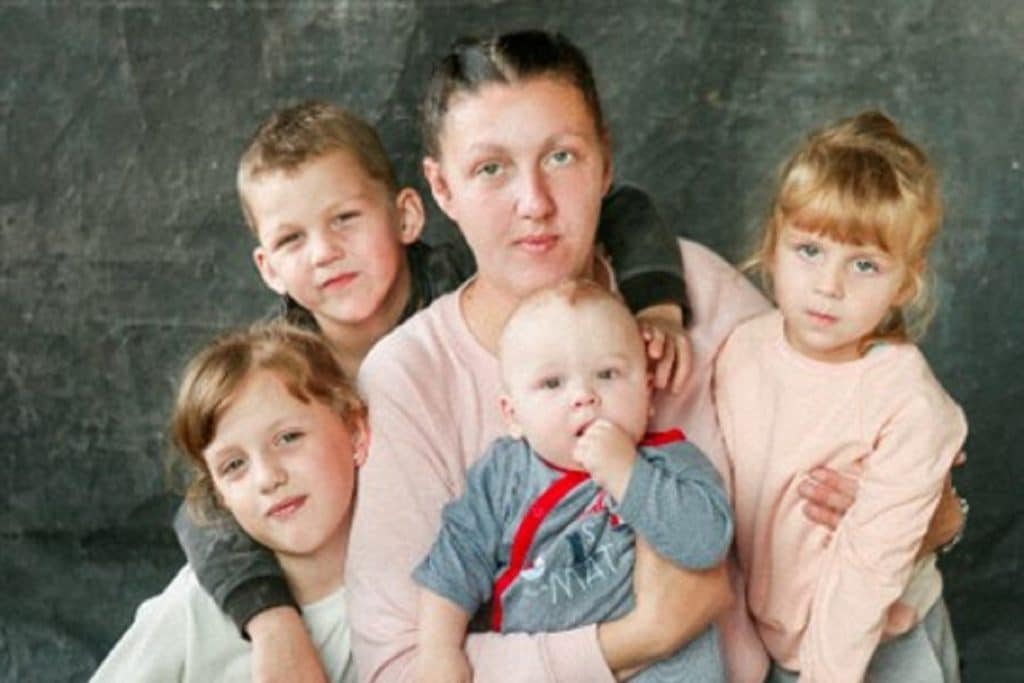It’s been one year since the dramatic escalation of the war in Ukraine. As the world’s attention turns once more to questions about the way forward, politically and militarily, it’s important not to forget the huge toll the war is taking on everyday people.
More than 13 million people — almost one in every three members of Ukraine’s pre-2022 population — have fled their homes due to the violence. Many have uprooted their lives to cross borders, while others have found relative safehaven in other parts of the country.
For them, life is full of anxiety, uncertainty and loss. They have learned to live one day at a time, realising that the most valuable things are those they grabbed by the hand when running away from danger. One year later, they have managed to rely only on their own strength.
The humanitarian crisis sparked by the war has a strong gender dynamic, with women making up the majority of refugees and displaced people. They are particularly vulnerable to trafficking, exploitation and abuse, and as is the case all around the world, they take on a disproportionate amount of unpaid caring work.
Many displaced women have risen up to support one another by volunteering as translators, teachers, psychologists and more. For others, life in shelters and temporary accommodation is a daily struggle to create normalcy for themselves and their families amidst the trauma of war.
These are some of their stories

Some of the first sounds Oksana’s youngest child Nazar ever hears are sirens, warning of an air raid, followed by explosions. It’s 24 February 2022. He is five days old and on the way back from hospital with his mother. He spends his first moments at home in the cold, damp basement of the apartment building where his family live. “The spring was cold,” Oksana recalls, “there was no heating in the basement. I wrapped the baby in my jacket, gave blankets to the other children and that is how we survived the anxiety.”

While most new mothers would be settling into a feeding routine and letting their bodies recover, the first thing Oksana does when she gets back to her apartment is to cover the windows with cardboard and blankets. She hears on TV that no lights should shine out of windows after 9pm. “To be able to feed the baby at night, I had to cover the windows tightly so that no light could penetrate outside,” she says. The makeshift blackout curtains prevent sunlight from entering the apartment, and Oksana and her four children lived in constant twilight.
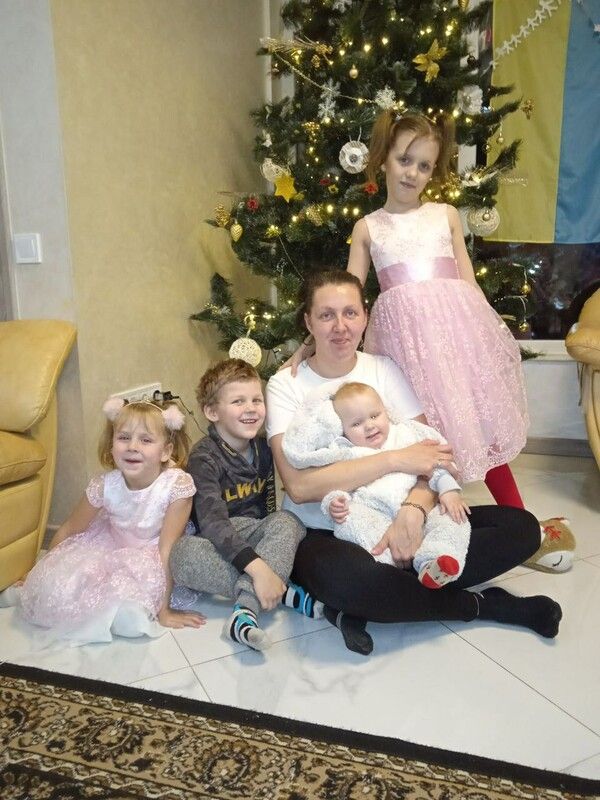
After four months of daily air raids, Oksana does not have any breast milk left and is finding it increasingly difficult to get food for her other children, who she is raising alone. She makes the decision to leave for Lviv, where the family eventually get their own room at a shelter run by the Centre for Women’s Perspectives, with support from the international aid agency CARE. This is where they spend Christmas 2022. Her eldest daughter, Vika, attends school online, but misses her classmates. Oksana believes they will return to their apartment one day, without having to spend so many hours and days in the cold, damp basement.
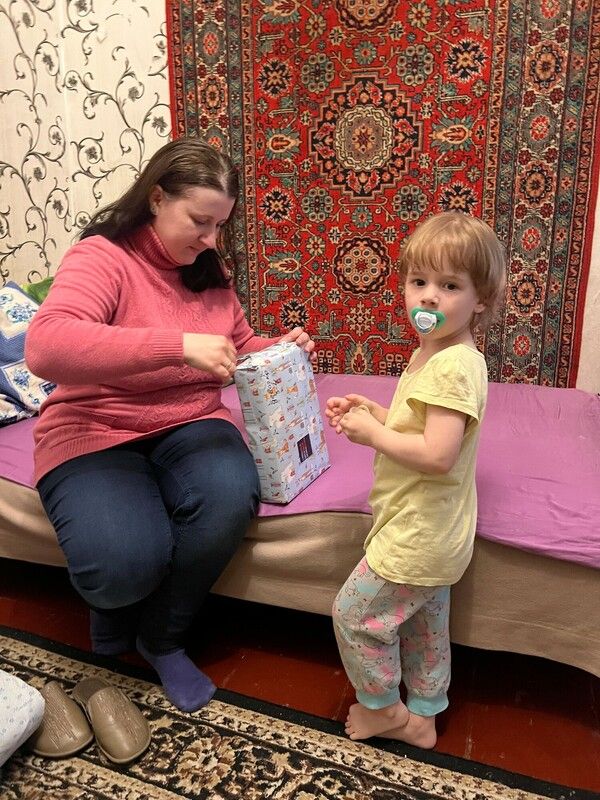
Natalia’s three-year-old daughter, Daria, has stopped speaking due to the trauma of gunfights around their home in a previously occupied area of Southern Ukraine. “When we heard the whistle of bullets, we immediately dressed our sleeping daughter warmly and took her to the basement,” Natalia recalls. “We always tried not to wake her up in order not to frighten her even more. Children should laugh, not scream and cry.”
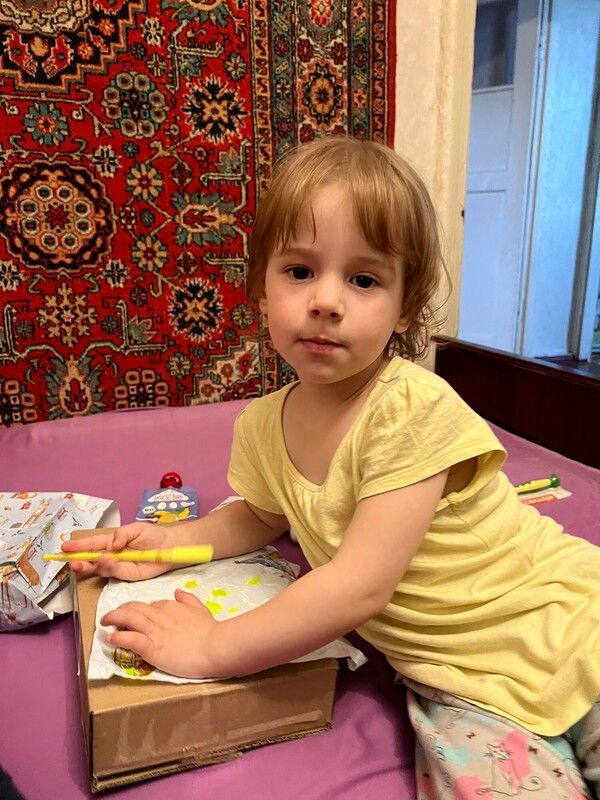
Despite her parents’ best efforts, Daria would usually wake to the sound of the fighting. The family have now been evacuated to a safer region, however Daria still wakes in the night screaming. She is receiving treatment to help her speak again. “The doctors believe that it is because of stress,” Natalia says.
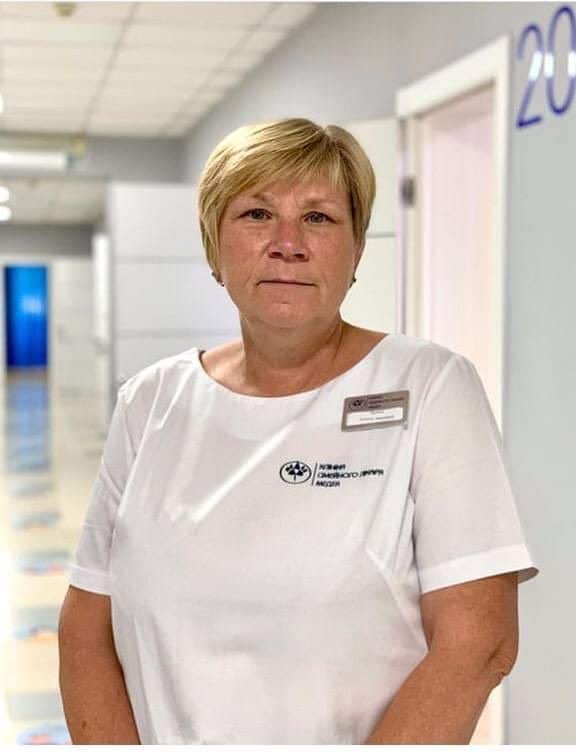
Dr Tetyana Butko has herself fled her home because of the war, and every day she treats patients who have been through the same. She says it’s hard for her emotionally to speak with so many people who have lost everything, especially children. “They need medical and psychological help. They need access to education and entertainment. Because such a daily routine is the best doctor for them.”
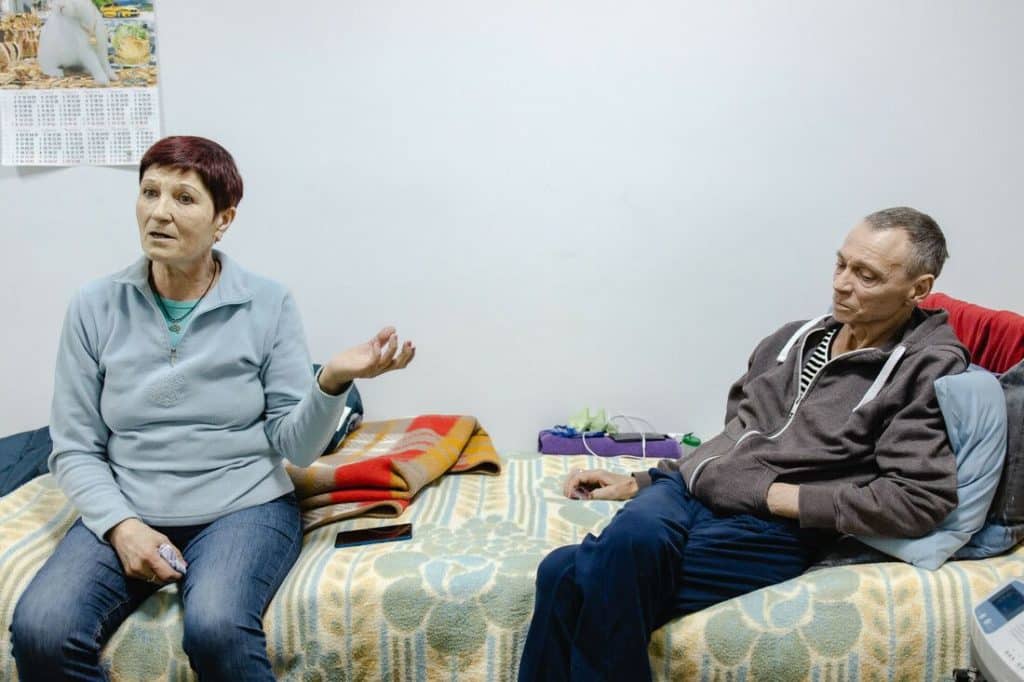
The stress and anxiety of living through a war has been doubled for Vira, who had to care for her husband Eduard when he contracted tuberculosis. In their home town, rockets flew through the air and the ground shook from explosions. Eduard began to suffer coughing fits and found it painful to breathe. There were no doctors or pharmacies open and all Vira had was some cough syrup, given to her by medical staff she encountered when she went out one day to get water.
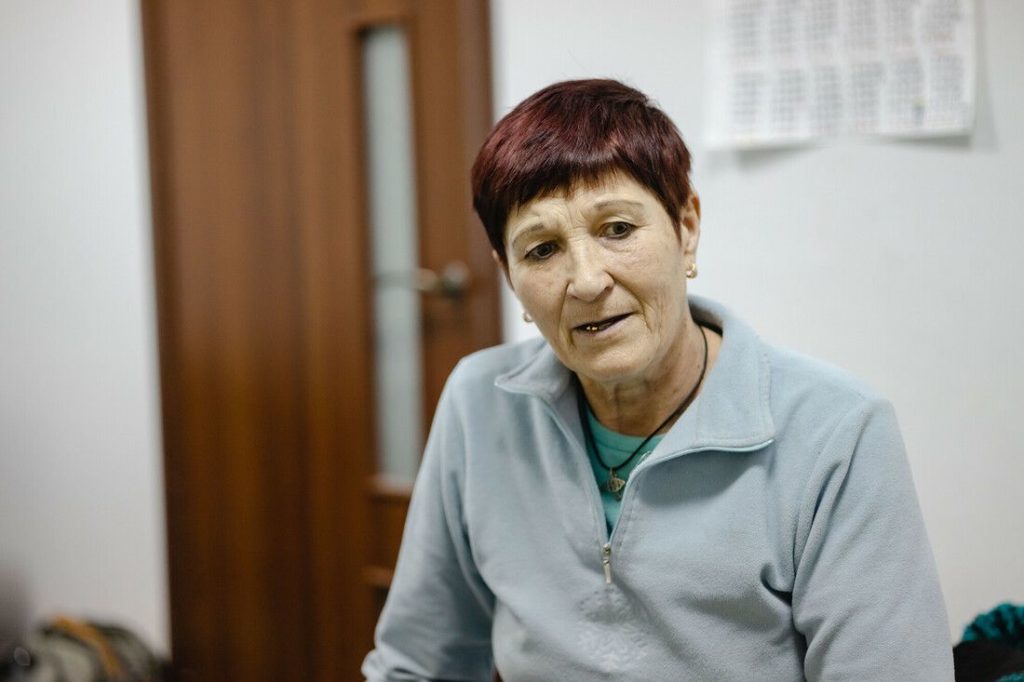
Eventually, the couple were evacuated to a safer region, where Eduard was diagnosed and spent seven months in hospital. The couple now live in a shelter run by the Ukrainian charitable organisation IRF, with support from CARE. “If not for Vira, her care and support, I do not know whether I would still be alive,” Eduard says. “The doctors said that with my health complications only one out of a hundred survive.”
Halyna Bilak is Communications Coordinator with CARE Ukraine. Read more and donate to CARE’s Global Emergency Fund at CARE Australia’s website.

